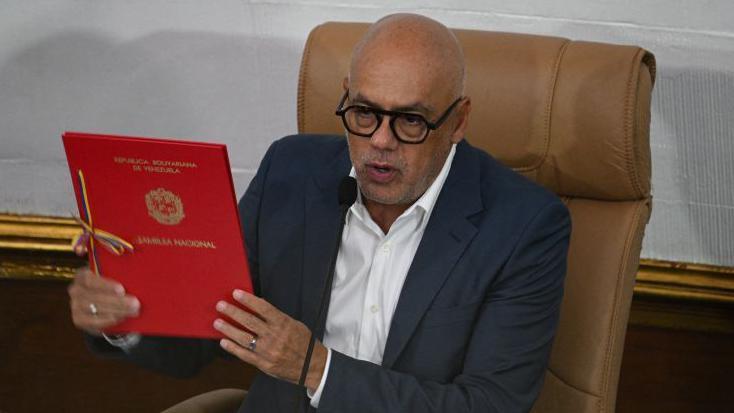Venezuela’s parliament has approved a law to oversee NGOs amid allegations of arbitrary arrests of opposition members following elections in which President Nicolas Maduro was declared the winner despite opposition warnings of fraud.
The legislation, called the “Law on the supervision, regulation, action and financing of non-governmental and related organizations,” was approved unanimously in the second discussion on Thursday, reported the president of the National Assembly, Jorge Rodríguez.
The law was approved three weeks after the National Electoral Council (CNE) proclaimed Maduro the winner of the July 28 presidential elections, while the opposition attributes the victory to its candidate, Edmundo González.
Following the election, NGOs and international human rights bodies have warned of a wave of repression with more than a thousand arrests, at least 23 deaths, the cancellation of passports for journalists and activists, judicial investigations against opponents and the temporary blocking of social networks such as X.
The United Nations High Commissioner for Human Rights, Volker Türk, asked the Venezuelan authorities not to adopt “these or other laws that undermine the civic and democratic space in the country.”
What does the law say?
The law establishes “a uniform system” for the “creation, registration, organization, operation, administration and development” of NGOs, as well as “to ensure transparency in their economic and financial management, including the sources of their financing.”
The text does not clarify what happens if an NGO receives international funding and requires organizations to notify “about the funding or donations that will be received in order to ensure the legality of the funds.”
The law warns that NGOs must clarify in their statutes “the manner in which they contribute to economic and social development” and “whether their funding is expected to come from foreign sources,” for which they must “register their sources of funding periodically with the competent authority.”

Complaint against persecution
Activists and NGO members in Venezuela say that this legislation seeks to criminalize organized civil society.
“The law anti NGO “formalizes the persecution of Venezuelan civil society organizations,” said Oscar Murillo, general coordinator of the NGO Provea, on his X account.
“Its approval responds to the nature of a political regime that seeks to control even the smallest sphere of people’s lives and the country’s.”
“In the end, what they want is to repress NGOs with this bill that joins the wave of repression after July 28 and that seeks to definitively close the civic space,” he told the agency. Reuters Attorney Ali Daniels, co-director of Access to Justice, a civil association that monitors the legal system.
Gina Romero, the UN Special Rapporteur on the Rights to Freedom of Peaceful Assembly and of Association, expressed concern on her X account about “the stigmatizing discourse used, according to which the actions of NGOs and other organizations are associated with serving as a ‘front for terrorism’; as well as the dissemination of ‘expressions of social hatred and fascist ideas’.”
There are dozens of foundations and non-governmental groups in Venezuela that work on issues ranging from caring for prisoners, monitoring the situation of violence, reviewing cases of extrajudicial executions, freedom of expression, and economic and social indicators, among others.

- Which Latin American countries are hosting the most Venezuelan migrants (and the fear that the current crisis will unleash a new wave)
- “Why do they have to come?”: Jorge Rodríguez proposes banning the presence of international observers in Venezuela after the UN report questioning the elections
